Space
Sign up for our newsletter
We summarize the week's scientific breakthroughs every Thursday.
-
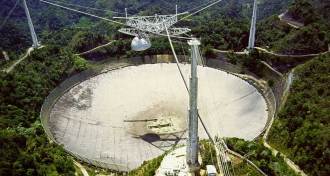 Astronomy
AstronomyTop 10 messages to send to E.T.
Fears that sending signals to alien civilizations would provoke an invasion shouldn't prevent transmitting important messages.
-
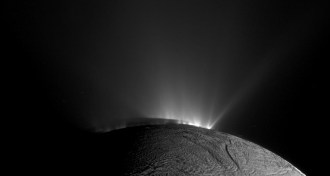 Planetary Science
Planetary ScienceEnceladus ocean may resemble Antarctic lake
The pH of a subsurface sea on a moon of Saturn resembles an ice-covered lake in Antarctica where microbial mats thrive.
-
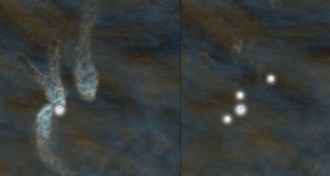 Astronomy
AstronomyStellar nursery gives birth to quadruplets
Four young stars, still in their cocoons, show that binary and other multiple star systems form together.
-
 Astronomy
AstronomyFinding joy and inspiration in the pursuit of knowledge
Editor in Chief Eva Emerson ruminates on the power of knowledge, and the ways scientists are refining how we think about the aging human brain, far away comets and even the speed of light.
By Eva Emerson -
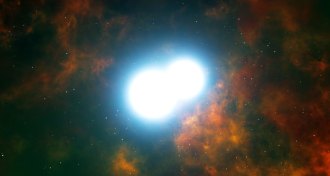 Astronomy
AstronomyWhite dwarf pair will trigger a supernova — in 700 million years
Astronomers found two white dwarfs with enough mass to explode as a supernova.
-
 Astronomy
AstronomyFirst stars born later than thought
New results from the Planck mission indicate that the first stars began to shine 550 million years after the Big Bang.
-
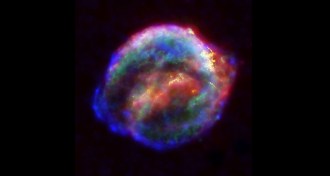 Astronomy
AstronomyAsteroids or planets might trigger a supernova
Rocky debris falling onto a white dwarf might trigger some supernovas.
-
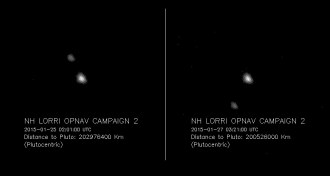 Planetary Science
Planetary ScienceNew Horizons snaps new photos of Pluto
Pluto and its moon Charon appear as two smudges in the first pictures taken since New Horizons came out of hibernation.
-
 Physics
PhysicsWhen entering a black hole, fasten your seat belt
Rapidly spinning black holes can generate turbulence, a new analysis shows.
By Andrew Grant -
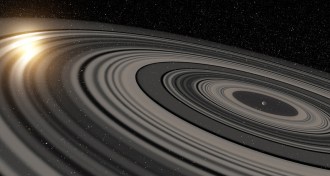 Astronomy
AstronomyGiant rings encircle young exoplanet
Stretching 90 million kilometers from their center, 37 stripes of dust around exoplanet were probably crafted by moons.
-
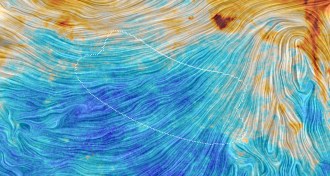 Cosmology
CosmologyDust erases evidence for gravity wave detection
The claimed detection of primordial gravitational waves does not hold up after taking into account galactic dust, a new analysis concludes.
By Andrew Grant -
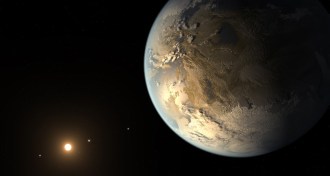 Astronomy
AstronomyNeptune-like worlds could become habitable
Mini-Neptunes can drift toward their stars and lose their atmospheres, leaving behind ice-rich rocky cores that can become watery worlds.